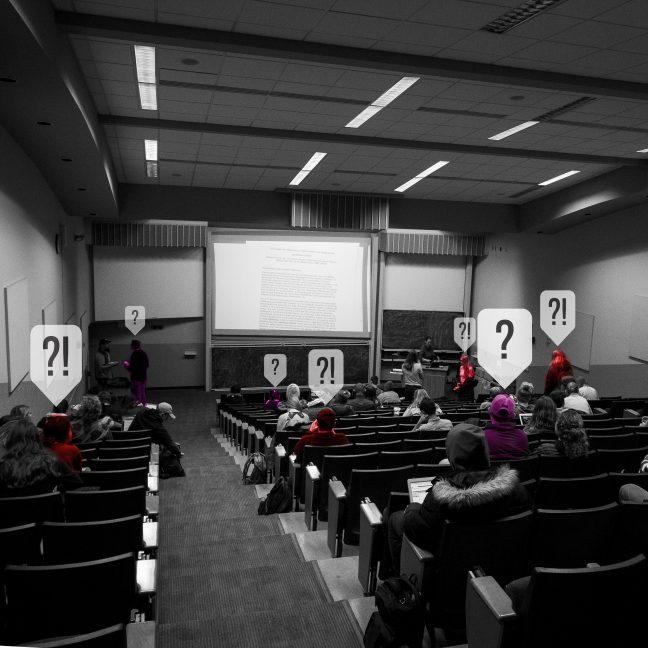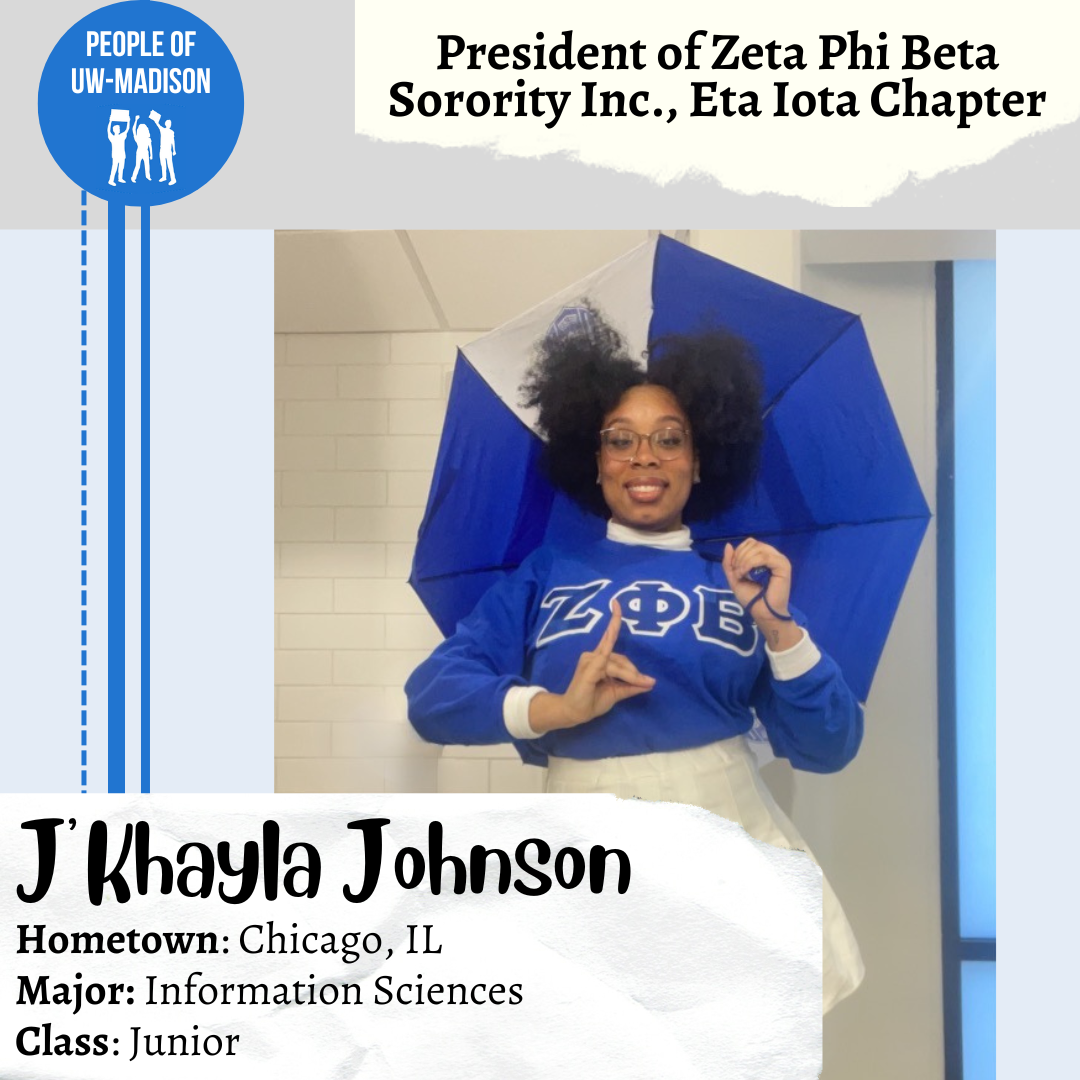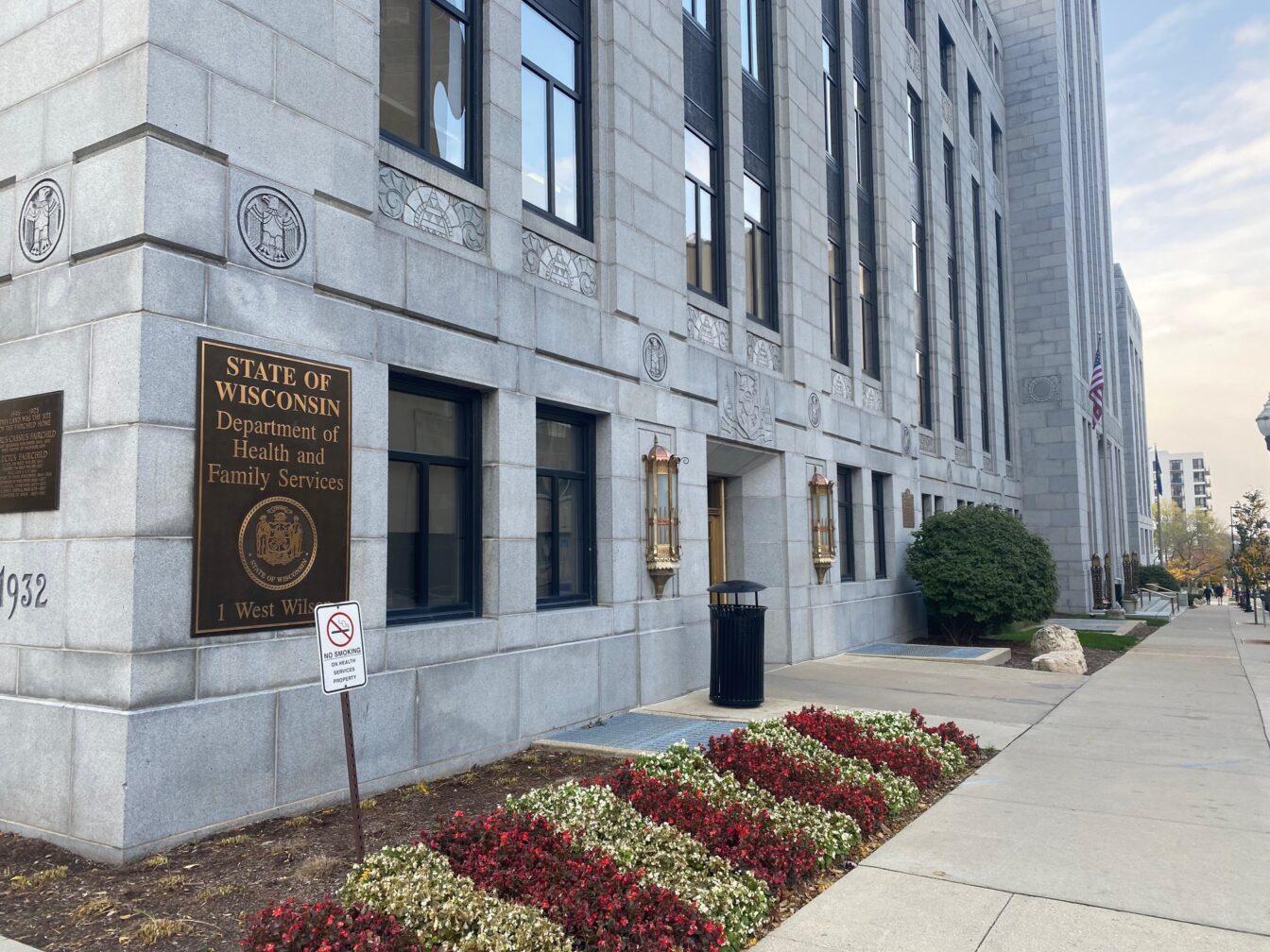In 1951, William Buckley rose to prominence as a conservative intellectual with the publication of his book “God and Man at Yale.”
The work criticized what Buckley viewed as a university environment and faculty hostile to religious expression and political conservatism. It was the first of several works that would establish him as a leading voice in the “New Right” of the 1950s and 60s.
Sixty years later, Tucker Carlson, a different spokesperson for a different “New Right,” would espouse similar sentiments during a segment entitled “Campus Craziness” on his Fox talk show.
Joining him was University of Wisconsin student McKenna Collins, there to speak about what she viewed as the latest instance of liberal “political proselytizing” on college campuses — in this case, a political science class syllabus she believed inappropriately singled-out President Donald Trump in a class meant to exist above the fray of partisan politics.
Collins’ appearance came months after the syllabus from a political science class on terrorism sparked controversy over what UW student Ali Khan called a “one-dimensional, single-faceted and inherently violent” characterization of jihad. Khan’s views, which were shared on Facebook, spread rapidly at UW and beyond.
Preceding both of these incidents was “The Problem of Whiteness,” a UW African Cultural Studies course that garnered national headlines and intense controversy. On the right, conservative state legislators called on the university to cancel the class and fire its professor, while those on the left defended the necessity of such a course for the UW campus. “If what we’re doing isn’t somewhat controversial or if someone doesn’t find it worthy of comment or critique or argument or discussion, then I feel like we’re not doing it right.”
These repeated incidents of course controversy — all falling within the last two years — have prompted a question about whether this is the new normal in what has been described as a hyper-polarized and politicized climate. And while Buckley’s 1951 critique of higher education precedes our current political moment by more than a few decades, the new challenges that social media and increasingly splintered news consumption pose to this old problem make for an uncertain future.
But before all that — before the controversy and the syndicated talk show appearances, before the viral Facebook posts and the debates in the state Legislature, before any controversies over course syllabi can enter our collective consciousness and affect the way we think about higher education — the university performs an intense and multi-tiered process of review and approval when creating new courses and reforming established ones.
Terrorism class syllabus prompts critiques of bias, racism in UW political science department
Course development
All courses at UW — from cornerstone classes that define a major to their niche counterparts — stem from and are consistently subject to a bureaucratic review process conducted at varying levels within UW’s institutional framework.
Greg Downey, an associate dean in the UW College of Letters and Science, said the formation of new courses can follow two paths.
One way is through a professor’s own initiative, based on their expertise in a particular topic. The other is through a mandated curriculum review required by the university at least once every 10 years.
Downey said those mandated curriculum reviews may reveal the need for a new course as the university attempts to stay up-to-date with industries adjusting to changing times and changing priorities.
“Holes in the curriculum or new ideas for the curriculum are identified from that review,” Downey said. “That’s a collective process — all those faculty and instructors from that department are talking about it and they bring that review up to the college level.”
As an example, Downey said a recent curriculum review within the School of Journalism and Mass Communication identified the need for a course focused on data visualization and data-driven reporting — a course which the school has since implemented.
But whether a new course is prompted through a mandated curriculum review or through a professor’s initiative, the same hierarchical, peer review process awaits it.
Downey said courses must undergo a review and approval process with at least three curriculum committees — one at the department level, one at the college level, and, finally, one at the university level. These committees examine a new course’s learning goals, its ability to meet them and the way they fit with the rest of the university’s established curriculum.
If approved, new courses don’t typically become immediately enshrined into the course catalog with permanent status. Typically, Downey said such classes will first undergo a period as a topics course. From there, they may transition into permanent courses taught repeatedly and consistently.
But it’s not just new courses that undergo an intense, multi-tiered review process. Downey said established classes are also subject to continuous review from committees embedded at several points within UW’s expansive bureaucracy.
“That review serves both to help instructors and professors become better teachers, and to help the course change and become a better course,” Downey said. “It always has those two simultaneous goals when we’re trying to review a course.”
The university has a few tools at its disposal when reviewing established courses beyond those curriculum committees. Other such methods include student evaluations at the end of each semester, examinations of professors on track for tenure and changes made by rotating professors as they inherit courses from each other.
Downey stressed that across the university, in all departments and colleges, courses change and interact with each other and that makes them better — better for students, for faculty, and for the university’s ability to provide a comprehensive and innovative education.
“I think too often we see courses as these single, solitary things, and they’re really not that. They’re tied together,” Downey said.
Despite the multiple layers of oversight and approval that go into reviewing established courses and developing new ones, professors enjoy relative autonomy in deciding what to include in their syllabi, outside of baseline university or general education requirements.
That autonomy is crucial as professors provide a unique learning experience and curate scholarship they believe to be best fit for the established learning goals. But as seen in recent years, it inevitably allows for criticism and controversy in courses that address sensitive and inherently politicized topics.
Humanities, social science courses experience enrollment decrease, while STEM courses rise
Course controversy
UW political science professor Andrew Kydd said he didn’t expect any controversy over his terrorism class syllabus.
In designing the course that he’s taught in various forms for many years, Kydd decided last year to include a section entitled “jihad.” He said it was only the first or second time he’s used the word as a section title, but it would prove to be at the heart of students’ objections last semester.
Khan, a student enrolled in the class, said that Kydd’s characterization of jihad was too narrowly focused on its connections to violence and terrorism, rather than jihad of other forms — such as those “by the heart, tongue and hand,” as he said in his original Facebook post.
Kydd said his use of the word wasn’t meant to offend, but was rather a “convenient, one-word label” for terrorist groups who self-identify as such. While the concept of “jihad” and its connections to violent action are admittedly complicated and difficult to adequately encapsulate, Kydd said it is a topic nonetheless vital to our current understandings of terrorism.
“I had that section because there’s no getting around the fact that terrorism from these groups has been incredibly important on the world stage and for the U.S. in the past 20 years,” Kydd said. “You’ve got to cover that, and you’ve got to cover it in-depth in a course on terrorism.”
Kydd said he took no issue with Khan’s objections or the way that he went about expressing them, but said he believes discussing and talking through issues is most productive for everyone involved.
“If we’re actually given a platform and actually given a voice and actually listened to and people responded to us, then we would feel safer speaking up about those things. I don’t blame students for not speaking up when they feel those things, because the experience when I did speak up was really exhausting for me.”
Downey echoed that sentiment, and stressed that speaking with one’s professors is the “first and most effective” thing a student can do to address any concerns or issues that may arise with a particular course.
“I’m speaking for myself here, but I think I’m speaking for every other instructor I’ve ever talked to — we love it when students engage [with the course material],” Downey said. “We invite students to comment on our teaching in course evaluations at the end of the semester, but we also invite them to engage with the course all the way through.”
To Downey’s credit, such actions have proved fruitful in the past. Mariah Skenandore, a Native American UW student, said she spoke with the teaching assistant in her Native American studies class about certain portions of the course curriculum she found to be offensive, such as the use of the term “Indian” to refer to Native populations.
Skenandore said her TA was responsive, and even changed portions of the syllabus to reflect the issues she raised — something which she said could prove to be an effective model for other students to engage in their own experiences.
“Even in the short interactions I had with my TA, they completely changed their curriculum in certain areas based on the conversations we had — and I was the only Native student that reached out to them about it,” Skenandore said. “If I said that and I had this issue with this one little thing, imagine if you asked ten Native students — then you’ll probably get more and better feedback.”
But not all UW students have reported feeling safe or comfortable enough to do that. Skenandore said she and many other students of color feel “silenced” on campus, something which discourages many from speaking with their professors or raising concerns in class.
“If we’re actually given a platform and actually given a voice and actually listened to and people responded to us, then we would feel safer speaking up about those things,” Skenandore said. “I don’t blame students for not speaking up when they feel those things, because the experience when I did speak up was really exhausting for me.”
That’s a sentiment Khan echoed in his Facebook post, as he stressed that “constantly debating with professors, stepping up to always teach others, and simply being present around this type of rhetoric is emotionally taxing.”
Downey said ethnic studies and related courses are hard to teach, because they often include students who do not come from diverse communities or who have limited experiences with multicultural environments. Such conditions, Downey said, inevitably affect how those students approach and respond to those courses.
To address that issue, Downey said the university has employed committees that examine how it can improve its teaching of ethnic studies courses.
“The faculty members and instructors and teaching assistants who teach those courses talk a lot about the best way to teach [them] — the best way to meet learning outcomes, the best way to meet students from all the different places and histories and vantage points — to make sure conversations are productive and civil, but also that they aren’t constrained,” Downey said.
Brushed aside: Students, faculty struggle to define what ethnic studies mean at UW
While concerns of students of color over how the university teaches its ethnic studies courses are by no means a new phenomenon, Skenandore said issues of racism in class discussions and elsewhere have spiked since Trump’s election.
Accompanying that spike is a perception of increased polarization and hyper politicization — a notion that nothing is above partisan bickering or ideological divides. In that regard, the UW campus is no exception.
Students saw that play out earlier this semester when Collins, a UW student enrolled in a political science course on the American presidency, objected to a paragraph on professor Kenneth Mayer’s syllabus.
The paragraph highlighted a series of unsavory details about Trump and his inner circle — from Russian hacking, to the investigation into collusion, to an inner-circle convicted of a host of crimes. Collins said she took issue with the paragraph because its “implicit bias against Trump supporters robbed students of the opportunity to think objectively about the subject matter and formulate their own opinions.”
Collins took to Facebook with her concerns, and her post quickly gained considerable attention — so much so that she appeared on Carlson’s nationally broadcast and widely followed talk show.
On that segment, Carlson said “it’s no secret that political indoctrination is replacing teaching in many college classrooms” — a parallel to Buckley’s critique in “God and Man at Yale.”
But Carlson’s comment and his “Campus Craziness” segment expand beyond that moment.
Everything about his Fox News show is a testament to our current political climate — the mere existence of an overtly conservative talk show advertised as news, aired on an overtly conservative news channel, watched by primarily conservative viewers.
Switch channels to MSNBC, and one might find something similar for those on the left. The scenario isn’t unique, and it isn’t limited to media.
College campuses, for many years, have been centers of controversy, homes to bitter fights over our country’s political evolution. The prognosis, many professors have told me, lies in this truth — the controversies over college courses don’t stem from Trump’s arrival, and they certainly won’t end with his departure.
Questions about curriculum, academic freedom arise from controversial terrorism class syllabus
Nothing new
That college campuses are home to some of the most intense controversies and political fights is a testament to the power they hold in shaping our country’s future and molding our perceptions of the present.
But while critiques of academia’s perceived liberal tilt are not a new development, tools like social media have made it easier to heighten and widely broadcast them.
In Kydd’s experience, he said Khan’s Facebook post facilitated a surprisingly quick response to an issue Khan raised mere hours before. And when Collins posted a similar Facebook post this semester, it would take her from a UW classroom to Carlson’s nationally broadcast newsroom in a matter of hours.
“I think these things get politicized more quickly these days than previously, and the speed with which it can happen and the reach that it has is kind of amazing,” Kydd said. “In the case of professor Mayer’s course, the student objected to the syllabus on day one and within two nights she was on Tucker Carlson’s show.”
Kydd compared the scenario to Buckley’s book. Both named specific professors in their critique, both suggested the classroom had become a place of political indoctrination and both were well received from audiences prone to agree with them.
The difference lies in their respective timelines. In what was an inevitably prolonged process, Buckley’s book had to be carefully written and developed, picked up by a publisher, and gain traction with readers. Now, anyone with a particularly poignant message and access to a social media platform can quickly broadcast it for the world to hear.
So while universities have always been and are likely to remain centers of controversy and heated debate, the rules of the game are changing. What that means for the future of academia is unclear, but the increased incidence of course controversies on this campus and at ones like it around the country may be suggestive of a larger trend.
But Downey said that won’t stop the university from fulfilling its role as an institution of higher education, debate and intellectual stimulation. Inherent to teaching important topics is a certain degree of controversy, but that doesn’t have to be a bad thing. It can also be an indicator that a topic is worth talking about — that it’s viscerally important enough for members of the community to hold a deeply-held, personal stake in how it’s taught.
“If what we’re doing isn’t somewhat controversial or if someone doesn’t find it worthy of comment or critique or argument or discussion, then I feel like we’re not doing it right,” Downey said.
Such sentiments seem to refer back to the Wisconsin Idea — to that “continual and fearless sifting and winnowing” in search of the truth.
What the future holds for academia in this intense political moment remains to be seen, and the role of emerging media promises to pose unpredictable challenges. But one thing appears to be certain — institutions of higher education will continue to be centers of controversy as long as the future is something worth fighting over.




















